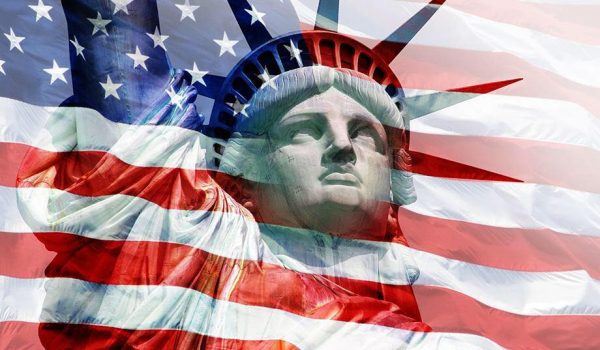All around the world, nationalists are gaining ground. What is nationalism, and why is this happening?
Almost 75 years after its publication in 1944, Hans Kohn’s The Idea of Nationalism: A Study in its Origins and Background is still regarded as a ground-breaking contribution to the study of nationalism. Few studies of nationalism have matched the intellectual rigor of Kohn’s classic work, which defines nationalism as a “state of mind, an act of consciousness.”
Writing in America as an exile from Nazi-controlled Czechoslovakia, Kohn sought to show how the “idea” of nationalism could be progressive or liberal at a time when it had become so conspicuously linked to fascism and violence. As Kohn described it, the idea of nationalism “developed during the Enlightenment in response to an intellectual and political crisis that accompanied the desacralization of the monarchy and the rise of individualism.”
Nationalism is a comparatively recent phenomenon, born with the French Revolution as a concept of universal rights of the citizen to enjoy “liberty, equality, and fraternity.” In contrast, the nationalism born in the unification of Germany harked back to their concept of “Blut und Boden” (blood and soil). It was a romantic and exclusive belief in race and tradition as the essence of national belonging—to enjoy identity with your “Volk” (people) as a distinct group in the world.

Despite its relatively short history, nationalism is vital in forming the bonds that hold modern nations together. Today it operates alongside the legal structure and supplements the formal institutions of society in providing much of the cohesiveness and order necessary for the existence of the modern nation-state.
Nationalism has also come to mean an expression of identity that glorifies, or at least invokes, a deep and abiding connection between individuals of the “nation” that informs, complements, and often transcends other identities rooted in religious belief and affiliation, class imperatives, gender roles, and regional affinities.

Just because people have difficulty articulating national identity doesn’t mean there’s no value in giving them an opportunity to try to do so. For people to express nationalism, it is first necessary for them to identify themselves as belonging to a nation—that is, a large group of people who have something in common.
The realization that they might possess a common history, religion, language, or race also aided people in forming a national identity. When both a common identity and a formal authority structure over a large territory (i.e., the state) exist, then nationalism becomes possible. All societies draw on nationalism of one sort or another, so we shouldn’t underestimate how central these nationalist categories are to people’s thinking about democracy.
It’s troubling how many countries are now shifting away from the idea of a universal nation of man toward the “blood-and-soil” ethnic mindset. In other words, positive “patriotism” is morphing into a negative “nationalism.” “Solidarity” is dangerously mutating into “distrust” of minorities.
It’s troubling how many countries are now shifting away from the idea of a universal nation of man toward the “blood-and-soil” ethnic mindset. In other words, positive “patriotism” is morphing into a negative “nationalism.” “Solidarity” is dangerously mutating into “distrust” of minorities.
Too much nationalism on top of political and social instability can lead to the rise of a regime like the Third Reich. Too little nationalism can lead to the current situation we see in Syria. When Syria came apart at the seams in 2011, the result was the proliferation of a dizzying number of rebel groups that to this day are as busy fighting among themselves as they are with resisting the regime of President Bashar al-Assad.
While totalitarian nationalism is extinct except in North Korea, it’s clear that an exclusive ethnically based form of nationalism is on the rise. In affluent democracies, it’s a potent vote-winner. In autocracies, rulers espouse it to distract people from their lack of freedom.
European elites once thought national identities would eventually blend into a continental soup. The EU would transcend national rivalries with a series of nested identities in which you could be Catholic, Protestant, Alsatian, French, and European all at once.
Even as ethnic nationalism has prospered, the world’s greatest experiment in “post-nationalism” has foundered. The architects of what was to become the EU believed that nationalism, which had dragged Europe into two ruinous world wars, would wither and die.
The study of nationalism is of growing relevance, as is clear from the headlines. President Trump is only part of a pattern around the world of nationalism gaining ground.
President Trump is only part of a pattern around the world of nationalism gaining ground.
For example, then-candidate Trump persuaded 61 million Americans to vote for him by promising to build a wall on the Mexican border, deport illegal immigrants, and “make America great again.” Though the United States may have its own brand of nationalism, most countries have a strong streak of patriotic pride.

European Landscape
Many European countries are witnessing electoral gains for far-right and nationalist parties, though they span a broad political spectrum. The migrant crisis has fueled a backlash against the political establishment, but the wave of discontent also taps into long-standing fears about globalization and a dilution of national identity.
How is this right-wing backlash reshaping Europe’s political landscape?
The momentum is now with parties like Austria’s Freedom Party. In recent years the far-right Freedom Party (FPOe) has shaken up the centrist consensus politics that dominated Austria for decades after World War II.
In the former communist countries of Poland and Hungary, power has passed to xenophobic ultra-nationalists, such as Poland’s Law & Justice Party and Hungary’s Fidesz. Hungary’s Viktor Orban, an immigrant-bashing prime minister, said, “Now we can return to real democracy…what a wonderful world.”
In France, the mantra was “No to Brussels, yes to France” as voters opposed globalization, global trade, and immigration. Marine Le Pen promised a “Frexit” referendum. Many political observers warned that Marine Le Pen’s National Front (FN) was the biggest nationalist challenge to Europe’s liberal democratic traditions.
The nationalist Sweden Democrats (SD) have challenged the traditional dominance of Sweden’s Social Democrats, a party associated with generous social welfare and tolerance of minorities. The SD has been described as far-right, national-conservative and argues for strict immigration controls and opposing multiculturalism.
Denmark’s immigration rules are among the toughest in Europe, reflecting the power of the Danish People’s Party (DPP), which came second in last year’s general election. The DPP opposes multiculturalism, as do nationalists in the rest of Scandinavia. Center-left social democracy no longer dominates in the way it did for decades.
Geert Wilders, with his mane of blond hair, is one of Europe’s most recognizable nationalist politicians. His anti-EU Party for Freedom (PVV) has surged to the top of Dutch opinion polls. He wants to stop Muslim immigration, arguing that Islam is incompatible with Dutch values. He wants the Koran to be banned in the Netherlands.
Britain’s “Brexit” slogan was: “We want our country back.” Prime Minister David Cameron resigned to be replaced by Theresa May. May said, “If you believe you’re a citizen of the world, you’re a citizen of nowhere. You don’t understand what the very word ‘citizenship’ means.”
In Russia, nationalism is used by Vladimir Putin to remain popular. It rejects liberal values and insists on an ethnically defined “state civilization held together by Russian people, language, culture, and Orthodox Christianity.”
In Russia, nationalism is used by Vladimir Putin to remain popular. It rejects liberal values and insists on an ethnically defined “state civilization held together by Russian people, language, culture, and Orthodox Christianity.”
In China, the Communist Party is blurring the distinction between itself and the nation to prop up its legitimacy as economic growth slows. President Xi Jinping launched the slogan “Chinese Dream” to promote a “revival” via a “patriotic education” campaign extending from primary school to doctoral students.
India’s ethnic nationalism lies under the surface as the Hindutva party purports to represent all Hindus. The party promises a national rebirth, a return to an idealized past, and the retrieval of an “authentic” native identity.
There are times when nationalism becomes more prominent on a global scale and other periods when it is displaced by other issues. Nationalism is ultimately an ideology. Ideology very rarely drives geopolitics; it is almost always the other way around.
The fact that nationalism is rising today is a signal that there are tectonic shifts happening at fundamental political, social, and economic levels that are causing individuals and nations to feel insecure about their place in the world.
















